Addendum: This story has been edited for accuracy.
Weber State University being virtually built into the side of a mountain is a selling point for outdoorsy students, where the rocky slopes serve as a backdrop for campus. The walk between Lindquist Hall and Marriott Allied Health is often jokingly referred to as a hike – an uphill walk with some steep stairways.
For Weber State University Student Association Disability Liaison Miriam Greene, it’s a little bit more than just “a hike”. Greene demonstrated what a typical route across campus for wheelchair users is like, pushing herself up the hill. The route starts by going around Miller Administration, taking a steep ramp up to the Student Services Center, an elevator ride to take the bridge across to Shepherd Union and another elevator ride to the third floor, where she takes several ramps to end up by Stewart Library.
Greene has to plan exactly when to leave her classes to attempt to make it on time and to avoid the crowds, who often do not move out of her way.
“If you are curious about what it’s like living on campus with a disability, borrow a wheelchair. Try commuting your route on campus in a chair. See how you feel by the end of it,” Greene said.
During her time at Weber State, Greene has noticed many cracks in the university’s support system for students with disabilities. Snow and plant overgrowth on ramps, unreliable elevators and accessibility doors and transportation around campus are important issues to her. Above all, she is concerned about communication issues between students and Disability Services.
Weber State’s Disability Services serves anywhere between 1,000-2,000 students a year, according to Director Angela McLean. They work with providing accommodations to students on a case-by-case basis, reviewing all Americans with Disabilities Act (ADA) requests and deciding what’s feasible and reasonable based on each student’s situation. Some of their services include testing accommodations, sign language interpreters and adaptive technology.
“We have to respond in a timely way to student requests. Students do have to prove they’re disabled. That’s under the law, and so they have to submit confidential medical information and meet with us and disclose certain things and so instead of having to disclose that to every faculty member or everywhere on campus, they come here and we talk,” McLean said.
However, this timely manner mentioned is not always experienced by the students that the center serves.
For example, Echo Oliver, president of Weber State’s disabilities club, said while they’ve had positive experiences with individual professors and students regarding their disability, they’ve had issues with administration.
“I have some accommodations from Disability Services, but I don’t have all of the ones I’m looking for, and I don’t have the really important ones I’m looking for,” Oliver said.
Oliver said that they have been asked by Disability Services to provide a doctor’s note, but when they provided this, the center told them it was not enough to receive all the accommodations they asked for. Oliver said they felt like the process was vague and difficult to navigate, especially when their questions were met with further uncertainty from the counselors and advisers in the center.
“I’m working on getting a diagnosis, but this is the thing that takes a lot of time. I need accommodations before then so I can do school,” Oliver said.
Oliver said that they felt like they were not asking for too much as individual professors will give them the accommodations; they just want official accommodations so that they don’t have to ask each time.
Another complaint against Disability Services is a lack of response to certain situations. Greene has fallen on campus due to ice and snow several times, even fracturing a vertebrae once because of it. While Facilities Management takes care to scrape off ice and accessible pathways, Greene said that on heavy snow days, these are usually slippery again once students start showing up for classes.
Greene said Disability Services’ response to this issue was advising her to stay home on those days.
McLean said she is not aware of any kind of statement of this nature from her office. She said that they work closely with Facilities Management, who is aware of the spots needing extra maintenance to provide accessibility.
Issues like these motivated Greene to start a campus-wide survey about overall satisfaction with Disability Services. This has proved more difficult than previously imagined.
Greene started working on the survey during the summer of 2024. She partnered with Robert Reynolds, associate professor of sociology, to create this survey and was working with the Office of Student Access and Success to distribute the survey. During fall semester 2024, she worked on getting approval from the Institutional Review Board (IRB), a board that examines research projects involving human participants to ensure ethical standards and regulations.
However, a Weber State University lawyer made some suggestions and edits to the survey that Greene found problematic. One of the questions Greene and Reynolds wanted to ask was whether students had been asked to complete cognitive testing to receive accommodations, which would be a violation of ADA laws. The edits changed the question to read if students were asked to complete testing in general.
“It’s a very confusing question because to be diagnosed with a disability, that requires testing, and you have to submit proof of that to receive accommodations,” Greene said.
Another edit Greene disliked was the removal of the words “discrimination” and “harassment” from the survey. Greene wrote a Likert scale question gauging how strongly students agreed or disagreed that they experience discrimination at Weber State.
“Every time that you’re replacing discrimination with bullying, you’re really not acknowledging that this is a continuum,” Greene said. “Bullying makes me feel uncomfortable. It’s frustrating. It’s irritating, I can largely ignore it. Harassment is concerning. It makes me feel unsafe. Discrimination is largely institutional and makes my life incredibly challenging.”
Greene and Reynolds were left with two choices: either keep the edits to get IRB approval or distribute it through the sociology department, which would have a more widespread sample and not apply directly to students who use Disability Services.
“It is a double-edged sword to the truest extent, knowing how to handle this. We need to preserve the integrity of the research study. We need to actually help people. I’m not sure if there’s a perfect way to do that either way,” Greene said.
As of April 2025, the survey remains unfinished. Greene has plans to work on it during the summer and return to working on sending it out during the fall 2025 semester.
McLean, who has worked with Disability Services for 26 years, said that her office already has a survey which regularly receives positive feedback.
“If they report anything else out, then we try to meet with them and figure out what’s happening,” McLean said.
McLean said that she is always open to talk to students about their frustrations and see if they can meet in the middle any way they can. She said that oftentimes, they are not aware of these issues because students are not communicating them.
“If you hit a barrier, call us. Set up an appointment. Meet with your adviser, have a phone call with your adviser. We take walk-ins. Let’s figure out what’s going on,” McLean said.
If students have issues with these services, they can report to their adviser, herself or even the Office of Equal Opportunity if their needs are still not being met.
Greene said that she felt that the university needed to talk to students and hold focus groups with people with all types of disabilities to get a better understanding of how they can improve.
“I wish we lived in a world that everybody’s needs could be met in the ideal circumstances, and it is challenging, but we definitely want to try it where we can,” McLean said.
In the meantime, pursuing this survey is helping Greene feel like she is making a difference.
“As a disabled student on campus, yes, there’s Title IX who can help when discrimination happens, when there’s issues, but it doesn’t really feel like anyone’s fighting for us,” Greene said. “A lot of times it feels like no one cares. So, to be a disabled student and advocate for other disabled students and try to improve things on campus is meaningful and it makes it feel like I’m less alone.”
Oliver remains hopeful that things will get better for students with disabilities.
“A lot of times when I’m talking to people about the accessibility issues on campus with the university, it comes across as feeling a little bit hopeless. They’re like ‘Oh, this is just how the university is, and it’s going to suck for the rest of time.’ But I don’t think that’s true,” Oliver said. “I think that we can build a community that is accessible to everyone with the university. I don’t think it’s that far away either.”













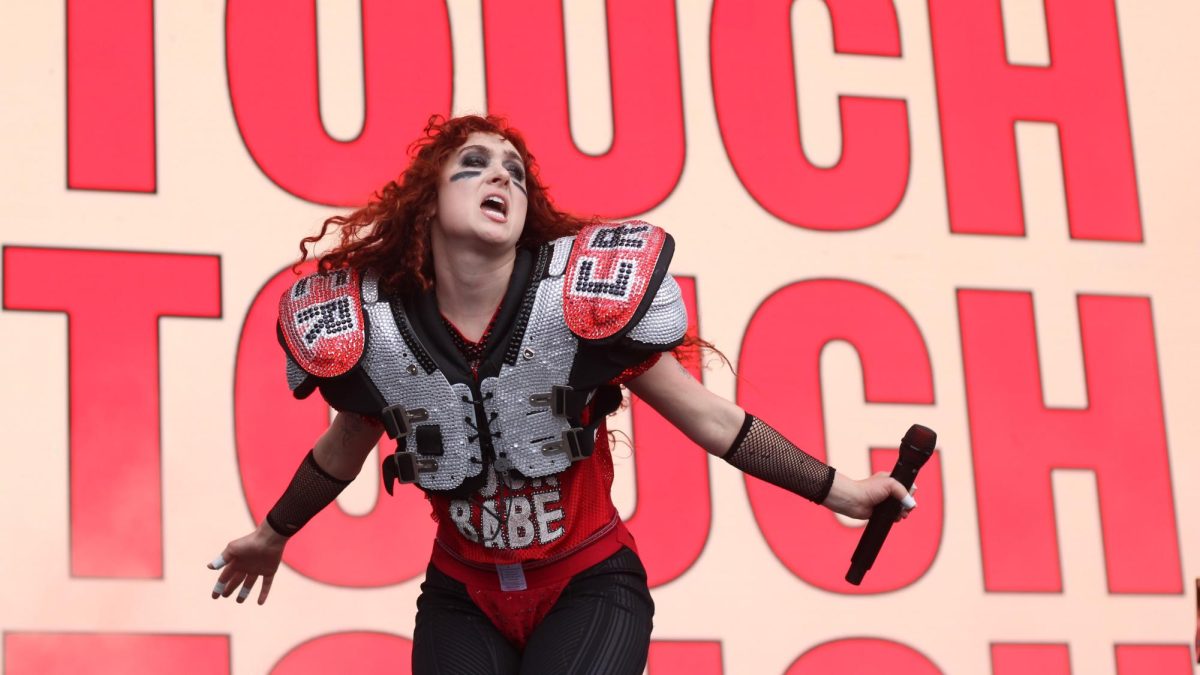
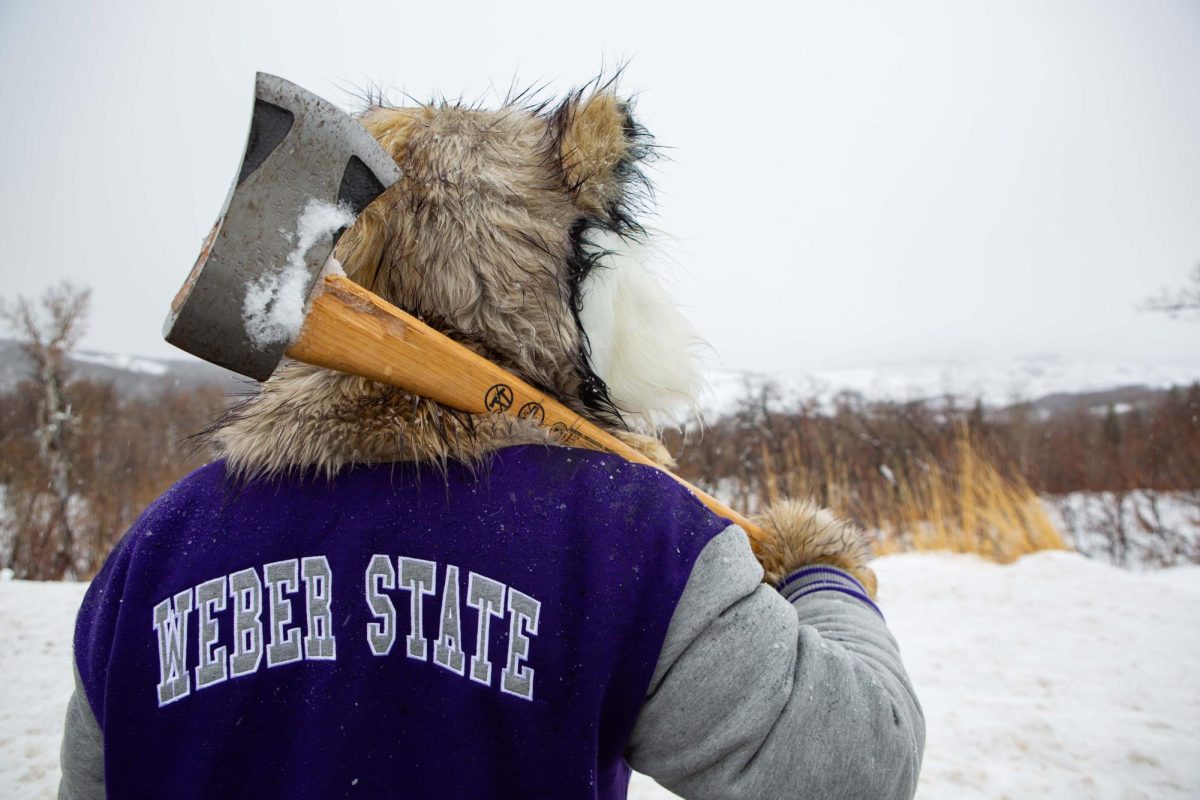


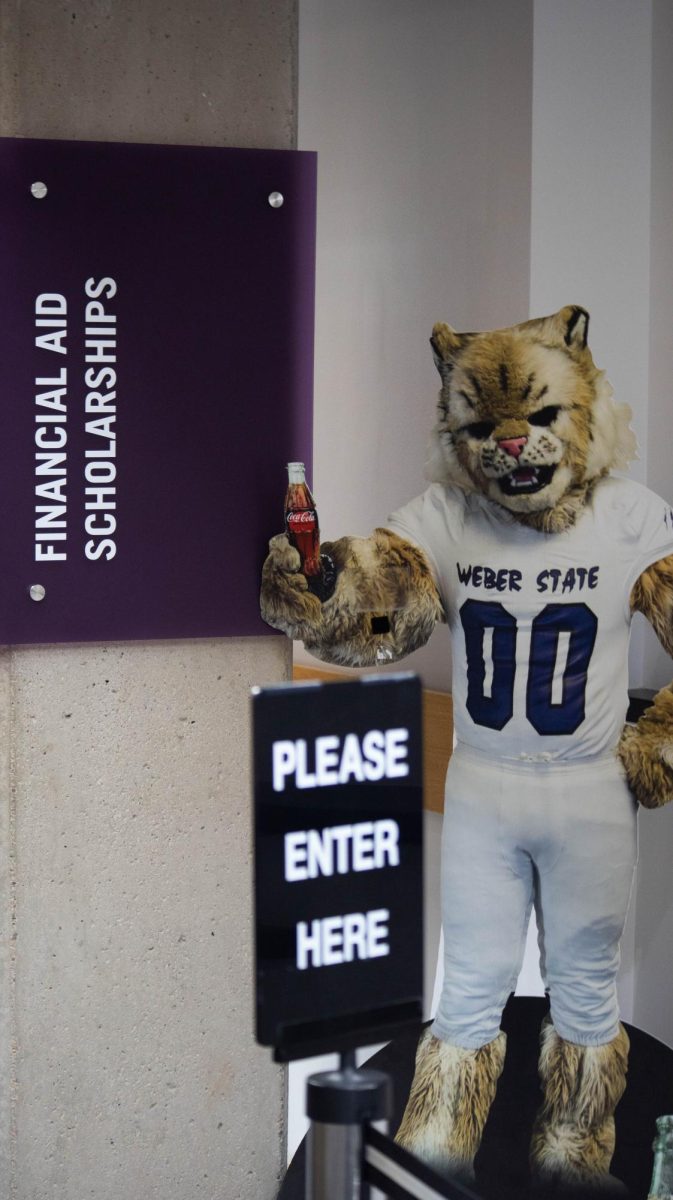
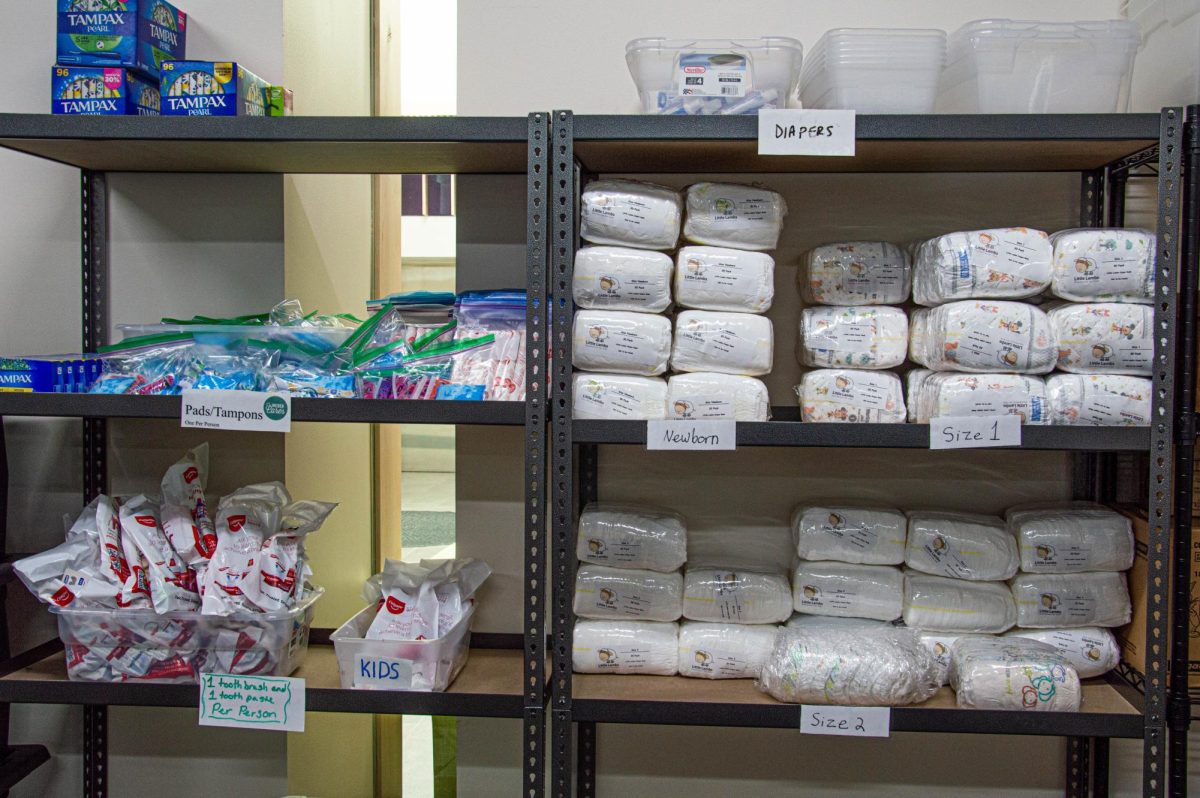
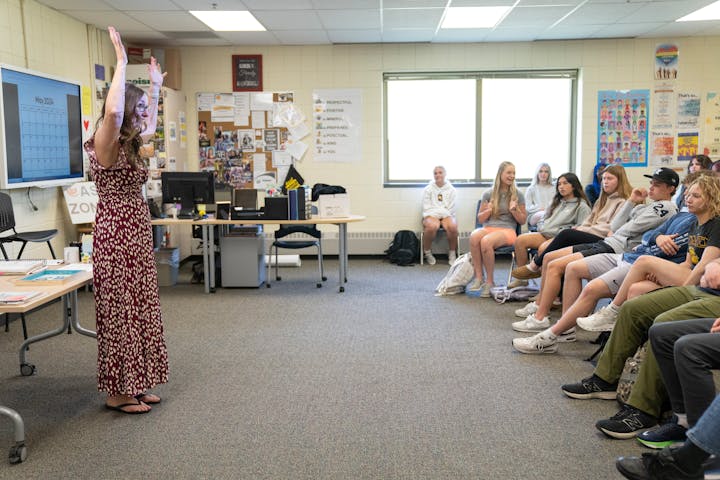
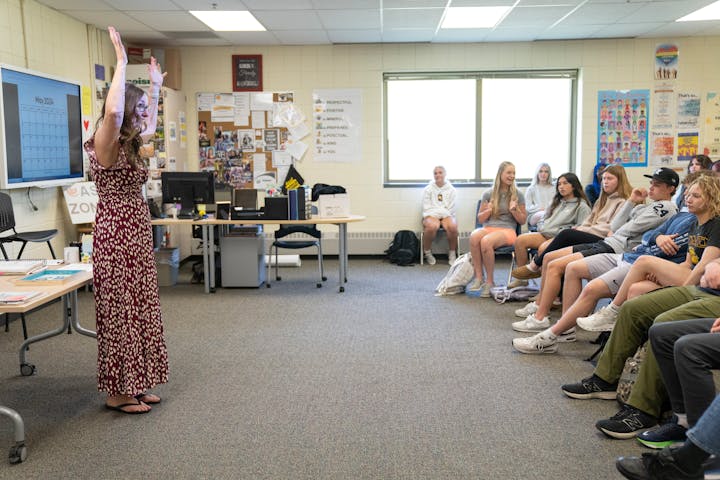

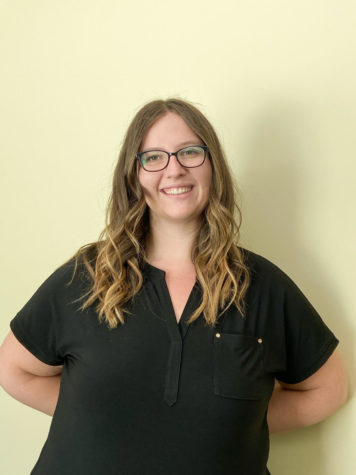
J • Apr 16, 2025 at 5:58 pm
Thank you for covering this topic. I especially dislike the second floor entry doorway for Kimball Arts center, does not have the rippled concrete for the bus route. What will slow them down if the bus is coming too fast and the disabled person has headphones on? Accidents happen, but preventable measures are possible.